School refusal is increasing. Are alternative schools the answer?
Teenagers from the school of hard knocks are flourishing in educational settings that give them the time and attention they need to get back on track.
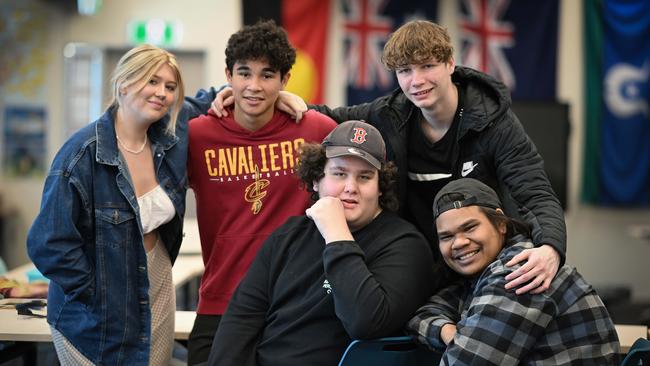
Despite skipping 265 days of high school and losing more than a year of learning, 16-year-old Aboriginal student Tariq is flourishing in an alternative school that sets troubled teenagers back on track.
Tariq beams that he hasn’t missed a day of learning since enrolling at the Queensland Pathways State College, where students don’t wear uniforms and are given one-to-one mentoring in small classes of 10.
“I missed 265 days of school in years 8 and 9,” Tariq tells Inquirer. “The teachers kept hassling me about my uniform every day, after every lesson. With respect, uniform isn’t as important as they think.
“When I came here everyone was eager to help me. I haven’t missed a day since I came here, and it makes me feel good.”
Tariq, who dreams of working in the building industry and is enjoying work experience as a house painter, plans to finish year 12 this year so he can start a trade apprenticeship. He is one of 220 students from the “school of hard knocks” who have been diverted to Pathways classrooms across six campuses in the poorer communities of Brisbane, Ipswich and Townsville.
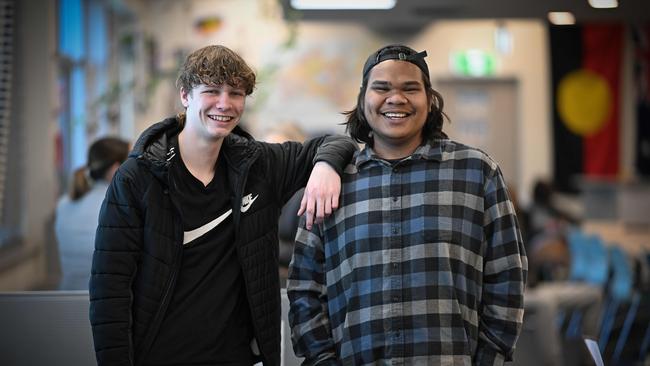
The innovative school is a beacon of success in the shadow of a pandemic that has left Australia’s children a dangerous legacy of mental health problems, family dysfunction, record truancy and alarming levels of youth crime.
A Senate inquiry into school refusal, due to deliver its findings this week, has been given until August to dig up statistical links between rising rates of truancy and lower academic outcomes.
Senators are investigating a phenomenon that has worsened since the Covid-19 pandemic, in a trend the charity Save the Children has warned could result in a “generational rupture”.
“The pandemic has disrupted children’s learning, weakened their connection to schools, placed severe pressure on their mental health and wellbeing, and significantly increased disengagement,” it told the inquiry.
Last year, student attendance levels dropped to the lowest level on record after the number of missed school days doubled compared with the start of the pandemic. Students skipped half of all school days last year, partly because of Covid-19, illness and flooding. In 2019 they missed a quarter of all days. Teenagers in high school were likelier to skip class, with attendance levels falling from 69 per cent in 2019 to just 45 per cent last year.
ReachOut Australia, an online mental health support service for children, notes that school refusal differs from “wagging” or truancy, as many kids are so mentally fragile or emotionally distressed that they can’t attend. The phenomenon has been fuelled by Covid-19 lockdowns, cyber bullying and kids falling so far behind in schoolwork during the pandemic that they have given up. “(School refusal) may present as … requests to stay home, delaying or refusing to get ready, through to reporting health complaints, skipping classes, leaving school or repeated absenteeism,” ReachOut told the Senate inquiry.
“Children may refuse to eat, or vomit, sit in the car shaking or experience panic attacks at the thought of attending school.” The charity notes that divorce or death can trigger school refusal, along with autism or high anxiety.
“Affected students might be worried about keeping up with their school work, interacting with others, friendship issues, loneliness, dealing with teachers, playing sports or being away from the family,” it says. Some parents have had to give up their jobs or cut back on work to care for kids who won’t go to school.
“Often this presents as a dilemma for parents and carers: should they be more forceful in making their teen attend school, or should they be more empathetic and allow them to remain home?” the charity told senators.
“Many worry that their teen won’t get the education – and subsequently, the job – that they might have hoped for.”
Desperate parents – many with children diagnosed as neurodiverse with autism or attention deficit hyperactivity disorder – have bombarded the Senate education committee with pleas for help. A single mother of two children explained why her daughter has failed to attend primary school since the first Covid-19 lockdown three years ago.
“At first, my daughter really tried to engage with the teacher and her friends online at home, however it soon became evident that she struggled to learn or feel connected to school that was conducted online,” the mother wrote.
“By the time we were nearing the end of the October 2020 lockdown period my daughter was not engaging with online schooling at all unless I sat beside her and encouraged her. My daughter spent her days drawing, painting, playing Roblox, watching Netflix and Disney+, listening to K-pop on Spotify, teaching herself Korean, playing board games, and playing with the cat. (Her) entire social life transferred to the online world.
“After the long lockdown period of 2020, when my daughter was eventually permitted and able to physically attend school, she became so agitated at the thought of school that she could not get out of the car at the school gate in the morning.”
Another distraught mother, a lawyer whose name was suppressed, had to quit work to homeschool her autistic son after he refused to attend primary school in 2021. She told the Senate committee that a state education department had threatened her with fines of up to $11,000 for school non-attendance. “They did not care about our son’s education or wellbeing or try to meet his needs as a disabled child,” she wrote.
“All they cared about was compliance and school attendance. We even had departmental staff questioning the professionalism of our child’s psychologist and pressuring our family to medicate our son.” The mother describes the conventional schooling system as broken. “It claims to be inclusive, but it is not,” she wrote. “It values achievement and attendance over student welfare and wellbeing. It provides limited places in specialist classes, but there are not enough places and they do not always meet the needs of children with disability.
“ It breaks my heart that my son cannot attend school. I grieve for the lost opportunities and friendships. I worry for his future.”
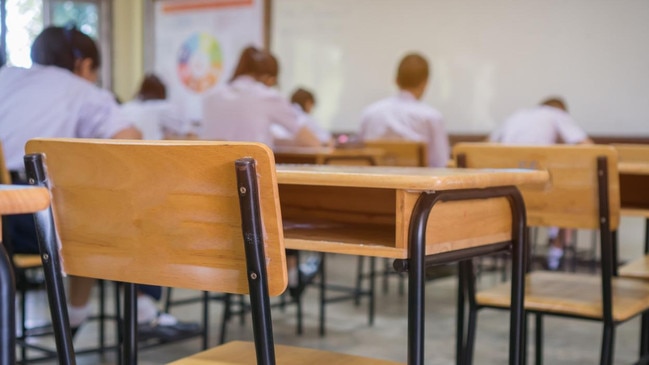
Escalating alarm among educators about the growing number of children missing from mainstream education is resulting in some innovative grassroots solutions. The Pathways college, for example, was established after a group of principals from disadvantaged Queensland high schools banded together to find a path for misfits from mainstream education who were dropping out or being expelled.
When Inquirer visited Pathway’s inner-Brisbane campus at Coorparoo this week, polite students were quietly and contentedly completing their schoolwork to qualify for a Queensland Certificate of Education. A poster proclaimed “knowledge is power’’. The school’s one rule is “respect’’. On a “gratitude tree’’ along one wall, the students had written their thanks for what most children would take for granted. Being back at school. Sleep. My sister. Music. Getting to school on time.
The students were not required to wear uniforms, and some rocked the rainbow-hued hair, mullets and nose rings that had been a trigger for conflict in their old schools. “Everyone’s super welcoming,” says Ruby, who graduated last year after Pathways ensured she finished year 12 while her father was treated for cancer. Harry, 16, is proud to have finished high school after a record of suspensions in 12 other schools.
The Pathways school does not offer a traditional academic pathway through the Australian Tertiary Admission Rank, yet one in 10 graduates has ended up at university. Graduates star on a “wall of fame” – they include nurses, youth workers, tradies, hairdressers, childcare educators, B-double freight drivers, a trainee psychologist, a pilot in training and a medical student.
Pathways college principal Kristie de Brenni says some schools with 2000 students are too large to cater to teens who don’t fit in with the mainstream. “When you’re struggling with your mental health or living in a domestic violence household and you need the uniform and the right ribbon in your hair – and you’re walking through the door and you haven’t even had breakfast – it does make it hard,” she told a Senate hearing.
“And mental health is a continuum – sometimes it’s good; sometimes it’s bad. On those bad days, they’ve got to take time off school. When they take time off school, they’ve missed the curriculum that occurred over that last month, and they might have been hospitalised in that last month. They all want to go to school, and that’s why they’re with us. But that can be a real challenge for some kids, and I don’t blame them.’’
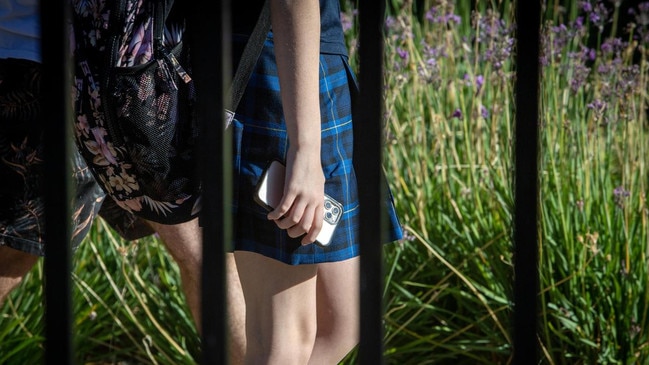
In Victoria, which endured the world’s longest Covid-19 lockdowns, Edmund Rice Education is offering flexible lessons through its new BlendEd program for students who cannot cope with mainstream traditional schooling. The federal and Victorian governments are funding places for more than 130 high school students this year. In the first four weeks, 80 students have enrolled in the courses, which can be offered on campus in five locations, live-streamed or accessed later through a recording.
Each group of 10 or 20 students is allocated a teacher as well as a youth worker who visits them at home, providing referrals to health services if needed.
“Unless we do something proactive we’re going to see a generation of young people who continue to stay at home, and their mental health will decline while they lose years and years of schooling,” Chloe Hand, the director of Flexible Learning Schools in Victoria, tells Inquirer. “They have a right to an education and we have an obligation and responsibility to create environments that work for every young person.”
Hand has seen parents “at the end of their tether” sobbing as they enrol their children in the hybrid school. She hopes to see mainstream schools offer more flexible lessons and timetables to keep kids engaged. “Not all students are going to suit all schools,” she told the Senate inquiry. “Education settings must meet the needs of the students. We must stop judging fish by their ability to climb trees.”


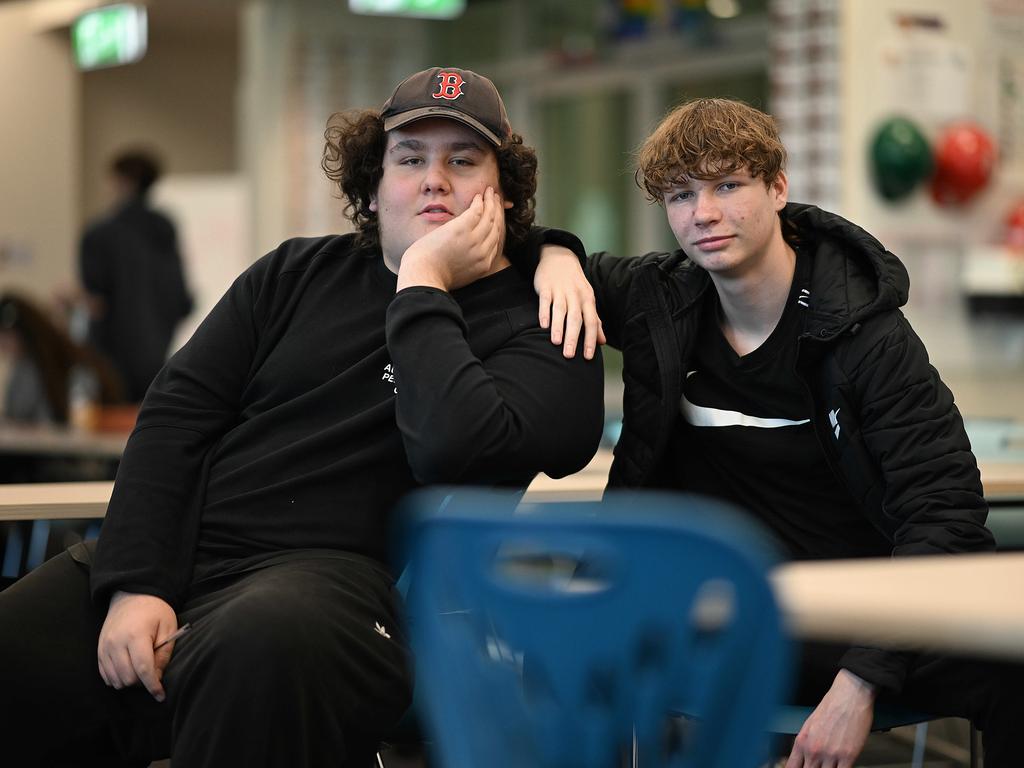
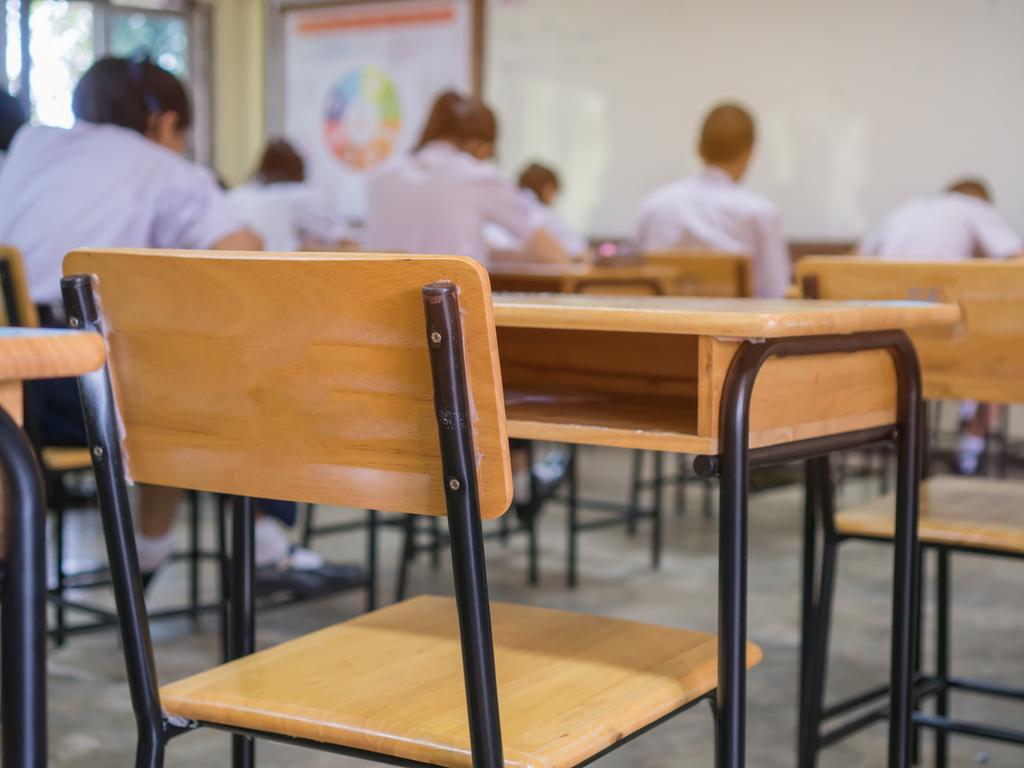

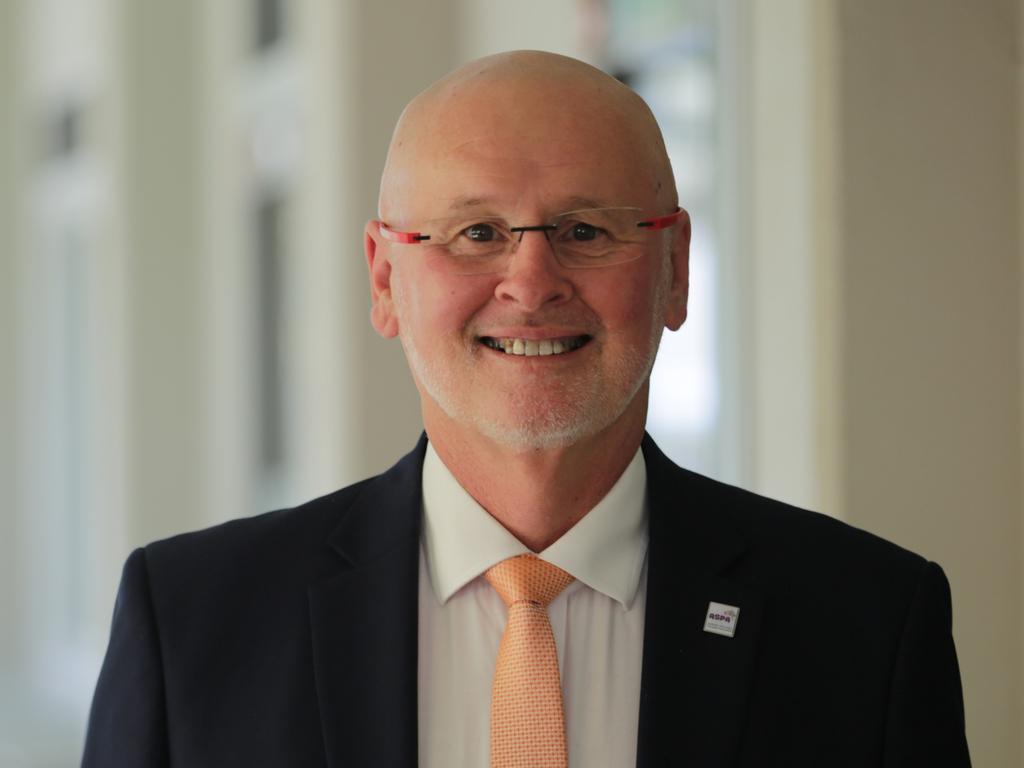


To join the conversation, please log in. Don't have an account? Register
Join the conversation, you are commenting as Logout